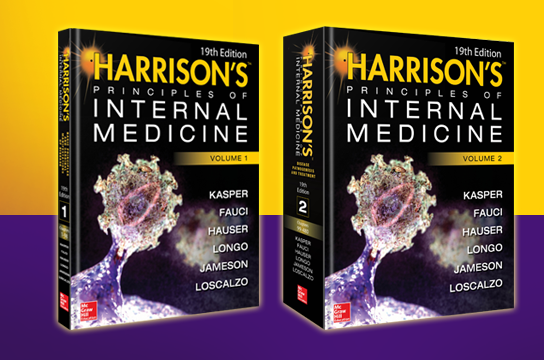Authors of World’s Most Authoritative Medical Textbook Received $11 Million From Pharma Industry: Study

A new study has found that the authors of some of the most authoritative medical textbooks in the world did not disclose financial conflicts of interest with the pharmaceutical industry and medical product companies.
The researchers — led by Brian Piper, a neuroscientist at the Geisinger Commonwealth School of Medicine in Scranton, Pennsylvania, United States — analysed six of the most influential textbooks to determine whether the authors and editors of had any significant potential financial conflicts of interest (pCoIs) in the form of patents or compensation from pharmaceutical companies.
It found that between 2009 and 2013, the authors received compensation that amounted to $13.20 million.
In fact, the authors of Harrison's Principles of Internal Medicine — considered the Bible for biomedical education across the world — had received the maximum part (83.9%) of that compensation in this period amounting to $11.07 million.
The highest compensation paid to an individual author was $869,353.
The authors/editors of the six textbooks, containing 772 chapters in total, collectively held 677 patents. (with the maximum patents per author being 23). Again, three-quarters of these patents (74.9%) belonged to the authors of Harrison's Principles of Internal Medicine.
The published study also carries a table with examples of the patent titles held by the authors and the correspondence with the chapter titles they had authored. The study also found that female authors were significantly under-represented among the patent holders.
The other five medical textbooks that were studied are Katzung and Trevor's Basic and Clinical Pharmacology, the American Osteopathic Association's Foundations of Osteopathic Medicine, Remington: The Science and Practice of Pharmacy, Koda-Kimble and Young's Applied Therapeutics, and Yagiela's Pharmacology and Therapeutics for Dentistry.
While disclosing conflicts of interest is required in scientific journals, no such requirement exists as of yet in the case of medical textbooks.
But it is important that full disclosure be made in the case of biomedical textbooks because, as the study puts it, they “have the potential to be influential for health care providers, as these are not just read during their formative professional development years but are often enduring references.”
Moreover, “these educational cornerstones include recommendations for treatments. Further, the breadth of how a disease is defined could substantially impact how often treatment is appropriate,” the study says.
“These findings indicate that full transparency of financial pCoI (potential conflicts of interest) should become a standard practice among the authors of biomedical educational materials,” the study concludes.
Speaking to the website STAT, lead researcher Brian Piper said the researchers were not surprised by the findings, and he has done such studies earlier as well. In 2015, he and others studied similar conflicts of interest in pharmacology textbooks.
He also acknowledged that while patent awards and compensation from medical companies did not necessarily prove that the work was biased, it assumes tremendous importance given the extent of the influence and the wide trusting readership they have.
“Sadly, after six years doing these types of studies, we were not surprised by these findings,” Piper told STAT. “However, we continue to be surprised that the publishers and authors of medical textbooks do not have the same transparency standards about conflicts of interest that have become widely accepted for clinical trials and other primary sources.”
Get the latest reports & analysis with people's perspective on Protests, movements & deep analytical videos, discussions of the current affairs in your Telegram app. Subscribe to NewsClick's Telegram channel & get Real-Time updates on stories, as they get published on our website.

















